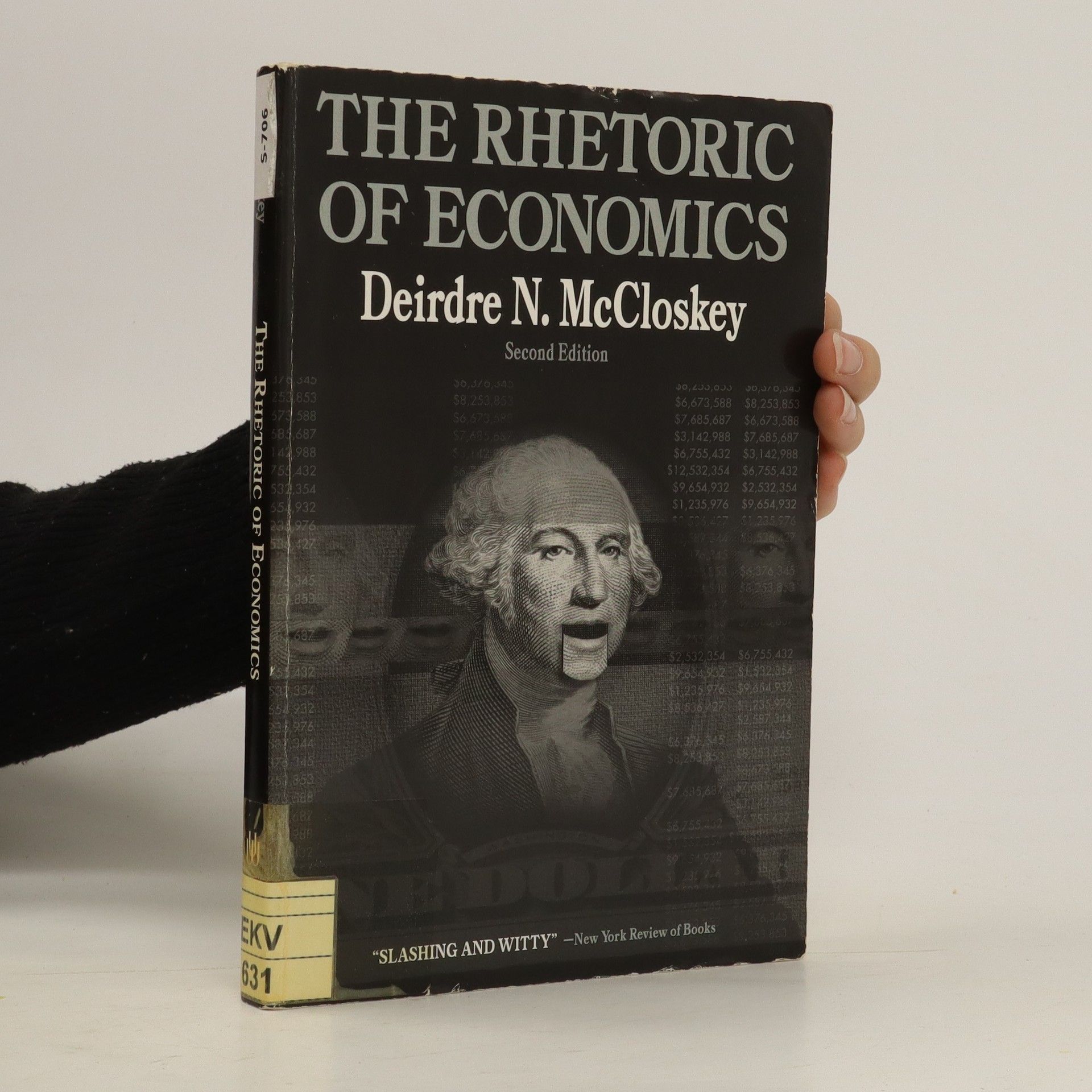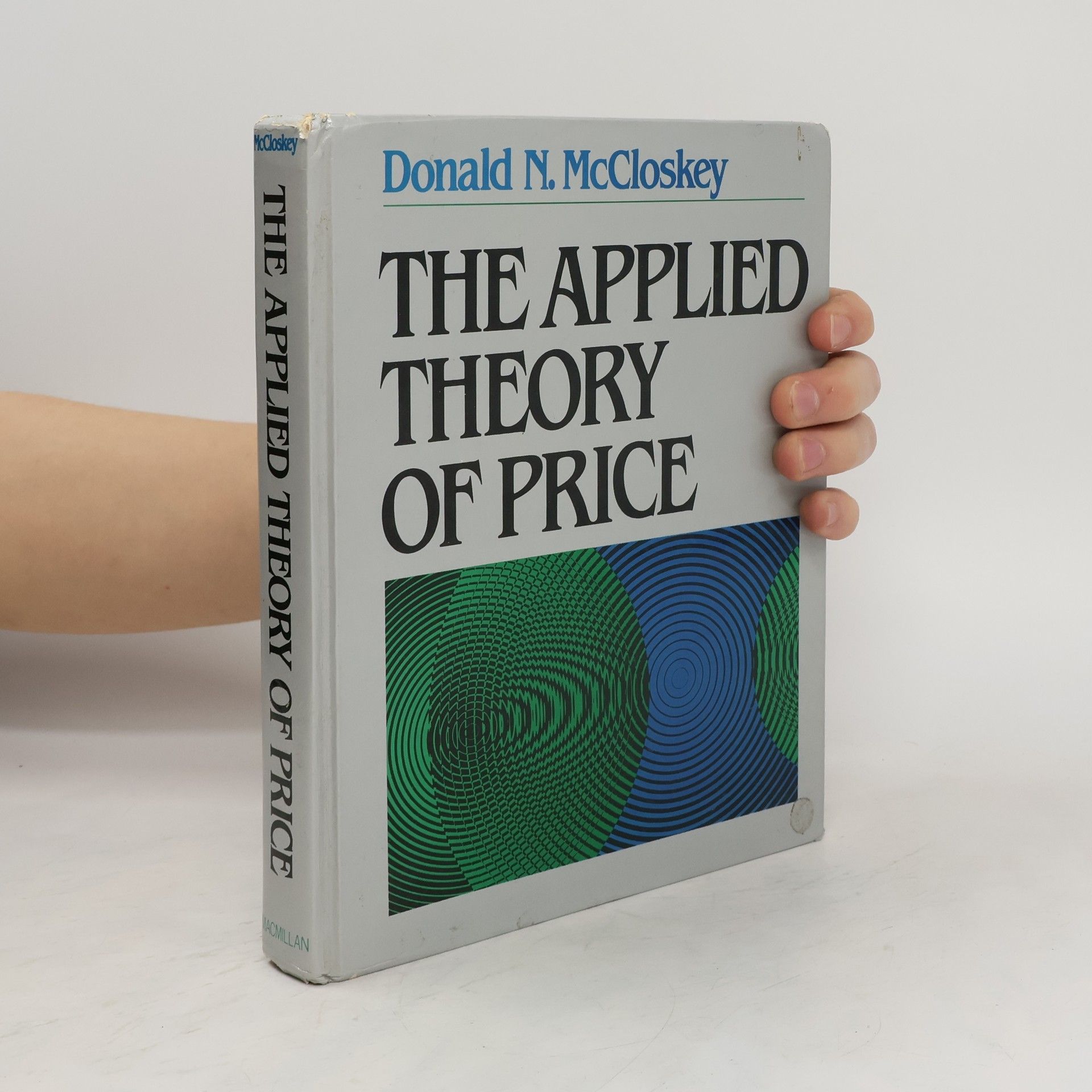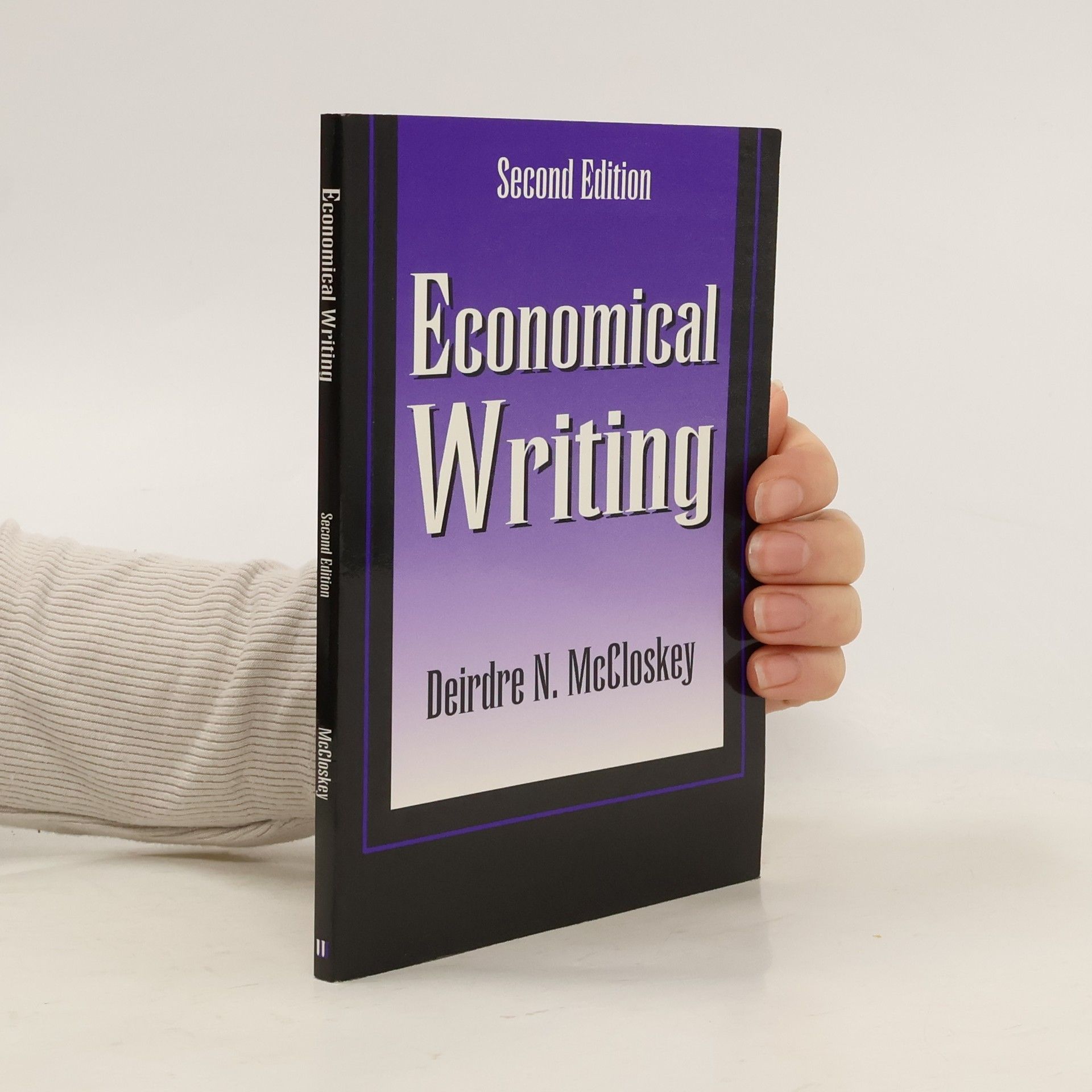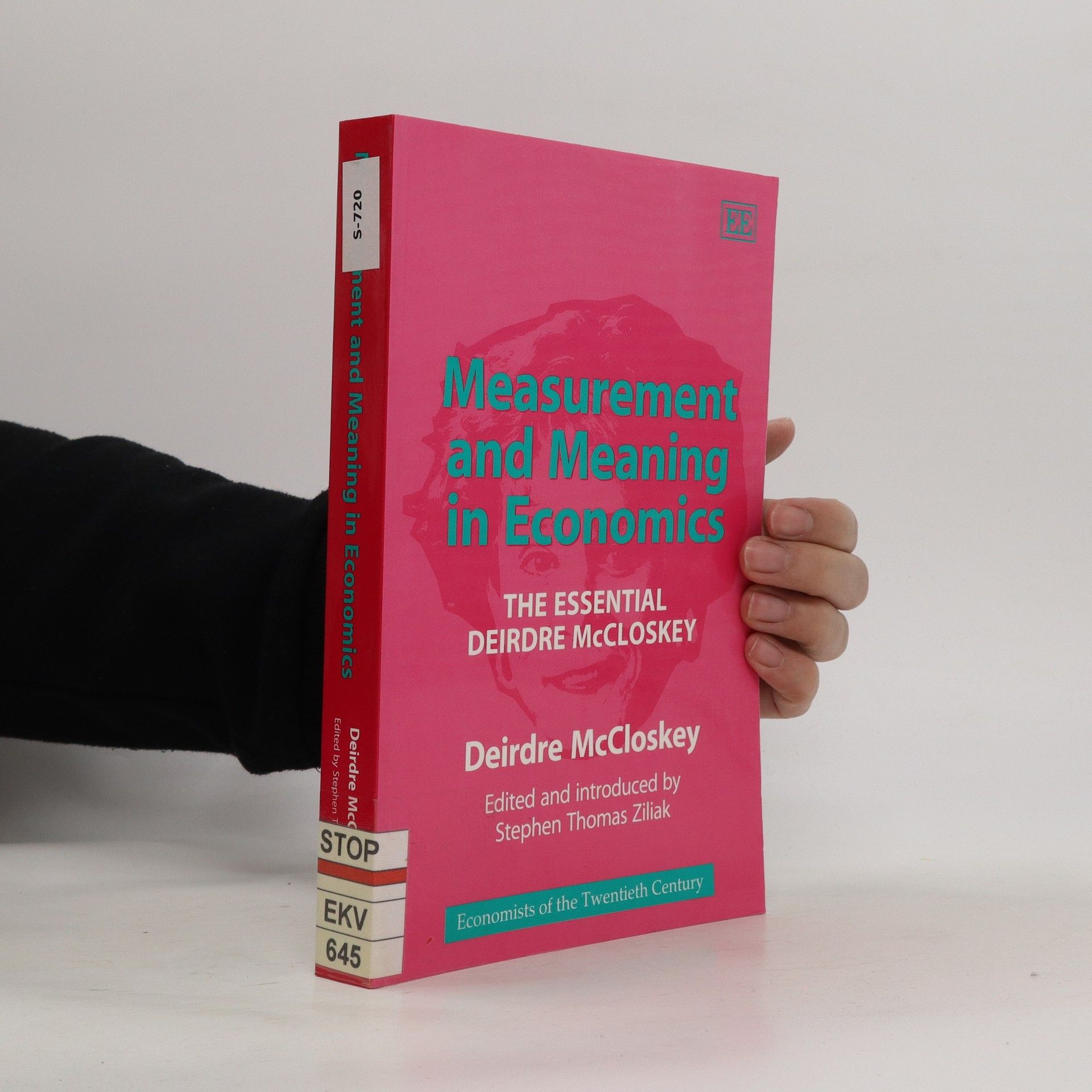Introduction The Argument in Brief -- Economics Is in Scientific Trouble -- An Antique, Unethical, and Badly Measured Behaviorism Doesn't Yield Good Economic Science or Good Politics -- Economics Needs to Get Serious about Measuring the Economy -- The Number of Unmeasured "Imperfections" Is Embarrassingly Long -- Historical Economics Can Measure Them, Showing Them to Be Small -- The Worst of Orthodox Positivism Lacks Ethics and Measurement -- Neoinstitutionalism Shares in the Troubles -- Even the Best of Neoinstitutionalism Lacks Measurement -- And "Culture," or Mistaken History, Will Not Repair It -- That Is, Neoinstitutionalism, Like the Rest of Behavioral Positivism, Fails as History and as Economics -- As It Fails in Logic and in Philosophy -- Neoinstitutionalism, in Short, Is Not a Scientific Success -- Humanomics Can Save the Science -- But It's Been Hard for Positivists to Understand Humanomics -- Yet We Can Get a Humanomics -- And Although We Can't Save Private Max U -- We Can Save an Ethical Humanomics.
Deirdre N. McCloskey Livres
Deirdre Nansen McCloskey est reconnue pour ses écrits influents qui explorent les interactions entre les idées, l'économie et le progrès sociétal. Ses analyses examinent comment les normes économiques et culturelles ont évolué au fil de l'histoire pour comprendre comment elles enrichissent le monde. Elle met l'accent sur la puissance de l'ingéniosité et de l'innovation humaines plutôt que sur la simple accumulation de capital ou les cadres institutionnels.






Economical Writing
- 112pages
- 4 heures de lecture
A valuable short guide for mastering the craft of academic writing! Students and young professionals who care about direct, clear expression should read this lucid, delightful gem by an author who practices what she advises. McCloskey s systematic treatment provides a range of insights and practical advice for better writing by scholars in every field.
1907. The book begins: In a small drawing-room, whose windows looked out upon a wintry Boston street, three people were sitting. It was a room rather empty and undecorated, but its intense warmth seemed in some degree to furnish it; one couldn't associate austerity with such an almost tropical temperature. There were rows of books on white shelves, a pale Donatello cast on the wall, and two fine bronze vases filled with roses on the mantelpiece. Over the roses hung a portrait in oils, very sleek and very accurate, of a commanding old gentleman in uniform, painted by a well-known German painter, and all about the room were photographs of young women, most of them young mothers, with smooth heads and earnest faces, holding babies. Outside, the snow was heaped high along the pavements and thickly ridged the roofs and lintels. After the blizzard the sun was shining and all the white glittered. The national colors, to a patriotic imagination, were pleasingly represented by the red, white and blue of the brick houses, the snow, and the vivid sky above.
The Bourgeois Virtues
- 634pages
- 23 heures de lecture
For a century and a half artists and intellectuals of Europe have scorned the bourgeoisie. Applying a tradition of virtue ethics to our lives in modern economies, this title affirms American capitalism without ignoring its faults and celebrates the bourgeois lives we live, without supposing that they must be lives without ethical foundations.
A classic in its field, this pathbreaking book humanized the scientific rhetoric of economics to reveal its literary soul. In this completely revised second edition, Deirdre N. McCloskey demonstrates how economic discourse employs metaphor, authority, symmetry, and other rhetorical means of persuasion. The Rhetoric of Economics shows economists to be human persuaders, poets of the marketplace, even in their most technical and mathematical moods.
"In Bettering Humanomics: A New and Old Approach to Economic Science, Deirdre Nansen McCloskey offers a critique of contemporary economics and a proposal for a better humanomics. McCloskey argues for an economic science that accepts the models and mathematics, the statistics and experiments of the current orthodoxy, but also attests to the immense amount we can still learn about human nature and the economy. From observing human actions in social contexts, to the various understandings attained by studying history, philosophy, and literature, McCloskey presents the myriad ways in which we think about life and how we justify and understand our actions in a synergistically human approach towards economic theory and practice"-- Provided by publisher
The Cult of Statistical Significance
- 321pages
- 12 heures de lecture
How the most important statistical method used in many of the sciences doesn't pass the test for basic common sense
"Deirdre McCloskey is one of our best-known economic historians and an advocate for free market capitalism and the power of ideas in shaping our economy. Leave Me Alone and I'll Make You Rich collects the provocative arguments put forward by McCloskey in a trilogy published by the Press that mounts a vigorous defense of capitalism as told through the story of the rise of the bourgeois. Co-authored with Art Carden, Leave Me Alone and I'll Make You Rich is a libertarian take on economic development and the role of government and, indeed, tells a different story of market expansion and democratization than that of Thomas Piketty or Joseph Stiglitz. Carden and McCloskey succinctly demonstrate the power of new technologies and new ideas about democracy, liberty, and dignity for all people in fueling economic growth and prosperity in modernizing Europe"-- Provided by publisher
Measurement and Meaning in Economics
- 416pages
- 15 heures de lecture
This essential book, now available in paperback, collects the writings of Deirdre McCloskey on economic history and the rhetoric of economics. The essays have been presented to show McCloskey's evolution over time: from economist to critic, positivist to postmodernist, conventional economist to feminist economist, man to woman. Measurement and Meaning in Economics allows the reader to experience an astonishing personal and intellectual journey with one of today's most fascinating economists. McCloskey argues that economics has become a historical and narrowly scientific, which is a harmful development for a moral science. In all of the papers presented in this volume she writes with historical consciousness and critical understanding in an attempt to repair the dysfunctional relationship between economics and the humanities. This book should be read not only by students and scholars of economic history and philosophy, but by all those concerned with the state of economics and its place in the social sciences.
Prečo je vzduch zadarmo a panenstvo drahé
- 179pages
- 7 heures de lecture
Aj vďaka knihám ako Freakonomics už ekonómia nie je dávno iba suchopárnou vedou. V našich zemepisných šírkach však chýbala podobná publikácia, ktorá by pracovala aj s domácimi reáliami. Po dvoch knihách rozhovorov so známymi ekonómami Lukáš Kovanda napísal knihu, kde v štyridsiatich kapitolách vtipným a prístpuným spôsobom skĺbil ekonómiou s psychológiou, sociológiou či antropológiou. Veľa o jeho štýle písania napovedajú už samotné názvy kapitol, ako: - Prečo sú tučné dievčatá prístupnejšie na rizikový sex - Prečo ľudí tak veľmi zaujíma, koľko zarábajú ostatní - Prečo sú Facebook, Google aj Apple americké, a nie japonské - Prečo slabé odbory môžu za exodus banánov do celého sveta - Prečo samoľúbosť zarába a vzdelaní ľudia žijú lacnejšie


